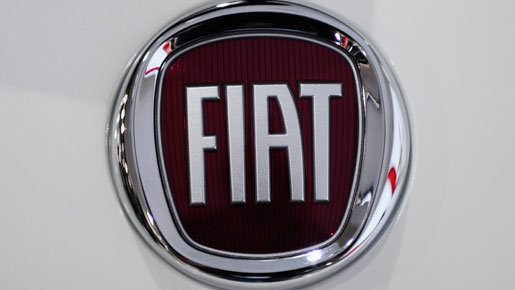
The head of Fiat said recently he was hopeful the Italian industrial group would get the financing it needed for the coming years, adding that its US unit had already started to raise money.
“I hope that within the year we will obtain the sources of financing that will allow us to go ahead in the coming years without difficulty,” Chief Executive Sergio Marchionne told shareholders at their annual meeting.
Fiat’s US unit, farming equipment maker CNH, had issued the first tranche of an asset-backed security (ABS), the proceeds of which will help it pay back a loan to Fiat, he said.
CNH took a $5.2bn loan from Fiat last year, an amount that weighed on its finances and raised concern about Fiat’s ability to pay off €4.8bn of debt due this year.
“We hope that within the next 12 months the (cash) that Fiat loaned CNH will come back to Italy,” Marchionne said.
In addition to CNH’s ABS, Fiat has obtained a €1bn credit line from its banks and a €400m loan from the European Investment Bank, he said, adding that a capital increase, subject of much speculation, was not on the agenda.
Need to rationalise
Despite the crisis ravaging the car industry, Marchionne confirmed Fiat’s aim of reaching a trading profit exceeding €1bn this year. “After a difficult first quarter, we expect a visible improvement in the coming months,” he said, adding that he was convinced the market had touched bottom. Fiat Chairman Luca Cordero di Montezemolo said “positive signs” had appeared in the market recently thanks to the Italian government’s incentives on encouraging the purchase of new, less polluting cars.
Marchionne reiterated Fiat’s readiness to play a role in what he expected to be a consolidation of the car industry in the next 24 months, pointing to the partnership that it was forming with troubled US car maker Chrysler LLC.
“Our objective is to do everything possible to safeguard our brands, our businesses and our way of doing business,” he said.
An industry with too many brands and too many plants had to respond to the challenges posed by the worst crisis in decades, he said. “There is an obvious need to rationalise.”
This urgency to rationalise has seen Fiat and other car makers slash costs, including suspending production at their factories for extended periods of time to douse cash burn.
These production halts have raised concern among Fiat’s union workers that it might close one of its factories for good.
Outside the building where shareholders were meeting, workers were handing out flyers calling on Marchionne to explain his plans for the future of its factories in Italy.
Marchionne anticipated their concerns in his opening remarks to shareholders, saying the problem concerned not only Fiat.
“When, five years ago, we had said that we would not close any plant in Italy, we were aware of the cost of that choice,” he said. “But today, the crisis has pushed beyond the limits of these sustainable conditions and, it is necessary to take into account that it is no longer a problem only for Fiat.”
“It is a problem that concerns all stakeholders,” he added.
Despite Chrysler’s request for another $5bn in US government loans, Marchionne criticised governments elsewhere in Europe for giving or considering aid to the car markers in their respective countries, calling it a “very dangerous unilateral decision”.
“It puts some players in a privileged position, and condemns others to fight with their hands tied,” he said.
He made reference to France offering billions of euros to PSA Peugeot-Citroen and Renault.

